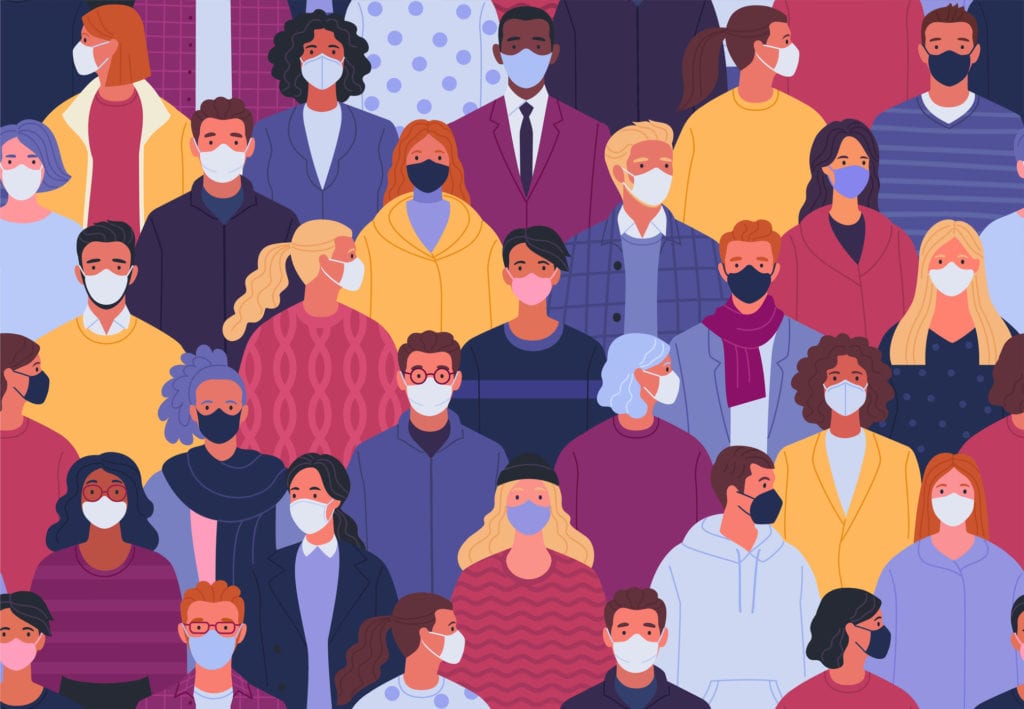COVID-19 is Transforming Dementia Research
The coronavirus pandemic has upended many aspects of our lives. So how is research into Alzheimer’s and related disorders changing, and what can we expect moving forward?
In recent months, the pandemic has changed research, putting clinical trials across the globe on pause. Yet, scientists have found new opportunities for innovation.
COVID-19 is raising many questions about the brain, body, and overall health. The Alzheimer’s Association announced a pioneering study to track the long-term effects of Sars-CoV-2, the virus that causes COVID-19, on brain function, behavior, and different aspects of cognition. Scientists from more than 25 countries will recruit participants with confirmed COVID-19 cases that have been discharged from hospitals, alongside people enrolled in international research studies.
 Scientists are also working to understand how the pandemic is impacting the daily lives of those living with dementia, as well as their caregivers and families. Social isolation remains a challenging consequence of the pandemic. Creating new routines that provide structure and allowing time for video chats with loved ones and walks out in the fresh air can help improve well-being.
Scientists are also working to understand how the pandemic is impacting the daily lives of those living with dementia, as well as their caregivers and families. Social isolation remains a challenging consequence of the pandemic. Creating new routines that provide structure and allowing time for video chats with loved ones and walks out in the fresh air can help improve well-being.
Finally, an April 2020 study by Canadian researchers considers lasting changes to the way Alzheimer’s research is done. Rather than requiring trips to the clinic, more and more cognitive exams and assessments will likely be done remotely. Our Brain Health Registry project has been at the forefront of remote assessments. One good example is the eVAL study.
eVal study returns to clinic after six months
Some members of the Brain Health Registry who live in the San Francisco Bay Area are being invited to join the Electronic Validation or eVAL study. The eVAL study has developed new “at home assessment methods” to evaluate cognition, functioning and longitudinal decline. These tools can be used accelerate development treatments for Alzheimer’s and related disorders.
This project is now resuming in-person visits, following a long delay due to COVID-19 outbreak. Participation in eVAL includes both in-clinic and online assessments to evaluate memory and thinking.

Since March, the eVAL research team has been developing a plan to safely resume study activities. At the San Francisco Veteran’s Affairs Medical Center (SFVAMC), this includes implementing COVID-19 screening protocols and face covering requirements for participants and study staff.
In September 2020, the SFVAMC and other research sites at the Mayo Clinic, the University of Alabama, Birmingham, and Washington State University, St. Louis received permission to safely resume in-person eVAL research visits. When eligible, BHR participants may soon be receiving invitation emails to participate!
Although COVID-19 is impacting all of our lives, forcing us to stay inside and connect with loved ones through our screens, it is important that we continue to collect data from our Brain Health Registry participants. We hope that gathering data in a time of global upheaval will provide valuable insight into brain health and cognition. We appreciate your support and participation more than ever!




